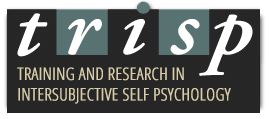
Jill Gardner
Jill R. Gardner, Ph.D. is a Clinical Psychologist in private practice in Chicago, Illinois. Over nearly five decades of practice, she has been extensively involved in the education and training of clinicians of all disciplines, through graduate level university courses, continuing professional education workshops, inservice programs in community settings, private study groups, and 20 years in a teaching hospital based-community mental health center. Throughout all these settings, her focus has been on enabling clinicians to understand how the theoretical concepts of self psychology and intersubjectivity theory can be translated into their clinical work, bridging the gap between theory and practice. Dr. Gardner has published a number of articles applying self psychological ideas, for example to clinical supervision and brief psychotherapy. She is a member of the Executive Board of the International Association for Psychoanalytic Self Psychology and an Associate Editor of Psychoanalysis, Self, and Context.

Harry Paul
Harry Paul, PhD, is a founding member, past president, faculty and supervising and training analyst at the Training and Research Institute in Self Psychology in New York City. He is a board and faculty member at the Training and Research Intersubjective Self Psychology Foundation and a member of the International Council of IAPSP. He is the co-author of The Self Psychology of Addiction and Its Treatment: Narcissus in Wonderland and most recently co-edited and contributed to Intersubjective Self Psychology: A Primer, Hagman, Paul, and Zimmermann, Routledge, 2019. He has authored numerous articles on self psychology, intersubjective self psychology, and addiction. He is in private practice in New York City and in Chappaqua, New York.

 Find Us on Facebook
Find Us on Facebook